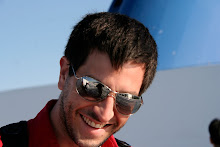Some
“I can’t give up teaching, I love teaching,” says Heather Harrison.
Harrison, 46, who has been a philosophy instructor at
If Harrison, who has never been a political candidate before, becomes one of
Vision Vancouver – a political party that was recently created by former members of the Coalition of Progressive Electors, including mayoral candidate Jim Green, who she’s known for years – has set up a committee to select three candidates from a list of 15 nominees, which has already been halved from 30.
If elected,
The young
“We would go to meetings and be very serious,” she chuckles, “and come up with resolutions that we thought the NDP should listen to on issues like the environment and youth involvement and we’d go to conferences and get involved in mock parliaments.”
“It was fun, it was really fun.”
Political involvement hasn’t just been about fun for
“My family is most important to me,” she says in a more passionate tone. “The way that I live my life is because I want it to be an example for my daughters. I want to demonstrate that an individual, and particularly a woman, can make a difference.”
“My oldest daughter belongs to the YND, and she’s very interested in international politics and the effects of globalization on third-world countries,” says
“She’s absolutely thrilled at the prospect that I might become a candidate,” says
Reflecting back on herself, Harrison, who spent most her youth in the small-town community of Saanichton on Vancouver Island, thinks that abstract thinking, which she’s been practicing during years of philosophical exercise, would give Vancouver city council a valuable point of view for difficult issues.
“I love abstraction, I love to think abstractly,” she says, “though it’s really good to have people of both [abstract and concrete] sorts in politics.”
“When you think abstractly you force yourself to see how things would apply in other situations; it’s a little bit of problem solving,” says
For example, if reality were hers to mould,
“I would organize
Though the city would look different in these ways,
“I love the cultural diversity. I just think it’s so exciting,” she says. “I think we’ve made ourselves into a world-class city with the different parts of our communities, our restaurants, our festivals . . . I think we’ve shed the old, boring
Boring as
“I started volunteering when I was nine,” she says. “I organized a community fair with all my friends,” and the proceeds went to charity.
Since then,
Perhaps by the end of November
